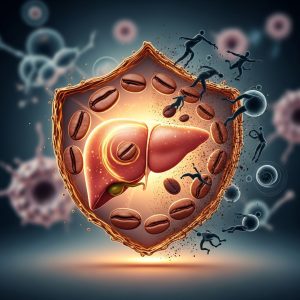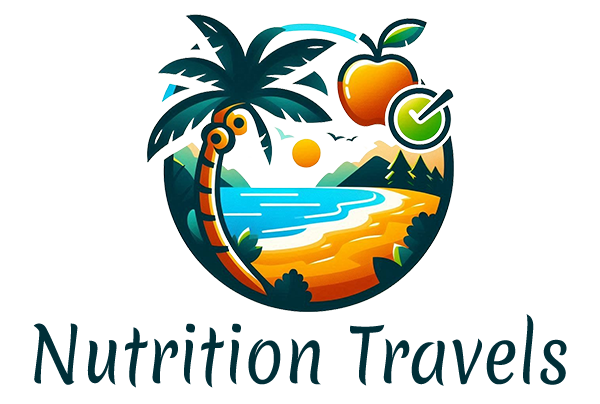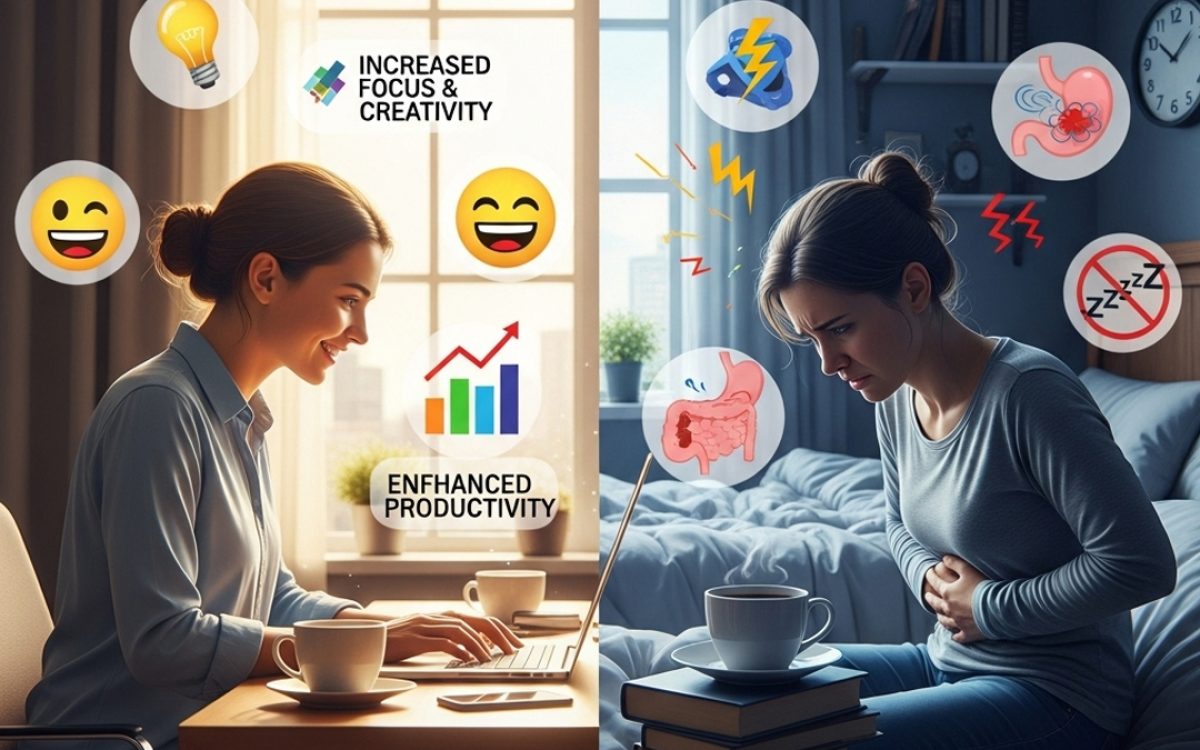Coffee on an empty stomach is a daily habit for millions worldwide. For some, that first sip is the ultimate energy kickstart, while others worry about its potential health risks.
In this article, we explore the benefits and possible side effects of drinking coffee before breakfast, backed by expert opinions and scientific studies.

Is Coffee on an Empty Stomach Really Harmful?
Although it’s common to hear warnings against drinking it on an empty stomach, experts say the answer isn’t absolute—it largely depends on the individual’s health condition.
The Health Benefits of Coffee: More Than Just a Stimulant
Coffee is not only a morning pick-me-up; it’s also a rich source of antioxidants and biologically active compounds that benefit both body and brain—whether consumed on an empty stomach or with food.
1. Boosting Mental Performance with Coffee on an Empty Stomach
Caffeine, the most widely consumed psychoactive compound, quickly enters the bloodstream and travels to the brain. There, it blocks adenosine — the chemical that triggers drowsiness — while increasing dopamine and norepinephrine levels. This chain reaction enhances neuron activity, improving focus, alertness, and mood, especially when coffee is consumed before breakfast.
Tangible benefits: Improved memory, heightened alertness and focus, elevated mood, and reduced fatigue—all of which make coffee an effective tool for both mental and physical performance.

2. Role in Weight Management and Fat Burning
Scientific evidence suggests that coffee may aid in weight loss efforts:
-
-
Boosts metabolism: Caffeine has been shown to increase the metabolic rate by 3–11%, especially in younger individuals.
-
Enhances fat burning: Studies show that caffeine may increase fat burning by up to 10% in obese individuals and up to 29% in lean people. Also, black coffee is extremely low in calories, making it a healthy alternative to sugary drinks.

-
3. Protection Against Chronic Diseases
Coffee acts as a shield against multiple long-term health conditions:
-
-
Liver diseases: Drinking coffee may lower the risk of liver cancer by up to 40%, and may reduce DNA damage in hepatitis patients.
-

-
- Type 2 diabetes: Regular drinkers have a 23–50% reduced risk of developing the disease.
- Neurodegenerative diseases: Regular consumption has been linked to a lower risk of Alzheimer’s and Parkinson’s diseases.
-
Depression: A Harvard study found that women who drank 4 or more cups of coffee daily had a 20% lower risk of developing depression.

Potential Risks: Health Concerns You Should Consider
On the flip side, drinking coffee on an empty stomach can lead to health issues, particularly for people with certain sensitivities or medical conditions.
1. Digestive System Irritation
This is the most cited reason for avoiding coffee on an empty stomach:
-
-
Acidity and Acid Reflux from Coffee on an Empty Stomach: Coffee contains natural acids and compounds that trigger the release of gastrin, a hormone that boosts stomach acid production. When there’s no food to absorb or neutralize this acid, it can irritate the stomach lining, increasing the risk of heartburn, acid reflux, and digestive discomfort.
-
Esophageal relaxation: Coffee can relax the lower esophageal sphincter, allowing acid to travel upward, causing discomfort.
-
Other issues: It may worsen IBS symptoms, and additives like sugar or dairy may contribute to bloating and discomfort.
-
2. Hormonal Disruption and Systemic Effects
Coffee affects more than digestion—it can influence body systems in other ways:
-
-
Cortisol spikes: Cortisol (the stress hormone) is naturally high upon waking. Drinking coffee immediately can amplify its release, potentially disrupting blood sugar, blood pressure, and increasing anxiety.
-
Sleep and anxiety issues: Caffeine is a strong stimulant, and excessive intake can cause insomnia, nervousness, or rapid heart rate—especially in those with anxiety disorders.
-

3. Additional Health Warnings
There are certain health conditions where coffee consumption should be moderated:
-
-
Heart health and cholesterol: Unfiltered coffee may increase LDL cholesterol and triglycerides, raising heart disease risk.
-
Pregnancy and breastfeeding: One or two cups per day is generally safe, but excess intake may increase miscarriage risk or affect infant sleep.
-

-
-
Bone health: Caffeine can cause calcium loss through urine, so individuals with osteoporosis should limit intake.
-
Conclusion & Practical Tips: Striking the Right Balance
The bottom line is that coffee affects everyone differently. Some people experience no issues drinking it on an empty stomach, while others do.
Here’s how to enjoy your morning coffee safely:
-
-
Start with water, then a light snack: Drinking water first, followed by a small meal (even fruit or toast) before coffee, helps reduce acidity.
-

-
-
Time it right: Experts recommend waiting 1–2 hours after waking before your first cup to allow natural cortisol levels to drop.
-
Experiment with types: Dark roast or cold brew coffees are less acidic and gentler on the stomach.
-
Moderation is key: Stick to recommended limits—no more than 400 mg of caffeine per day (around 3–4 cups of coffee).
-
In the end, your body is the best guide. If you tolerate coffee on an empty stomach without discomfort, enjoy it mindfully. If you notice any negative effects, try small adjustments — like adding a light snack or choosing a lower-acid brew. Small changes can keep your coffee ritual both satisfying and healthy.
Curious to learn more?
This is just a sip of what you’ll find on Nutrition Travels. Dive into more expert-backed insights, healthy habits, and wellness guides made just for you!morning-coffee-benefits-risks





